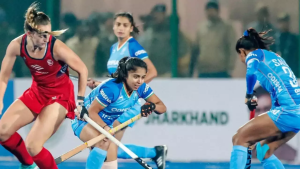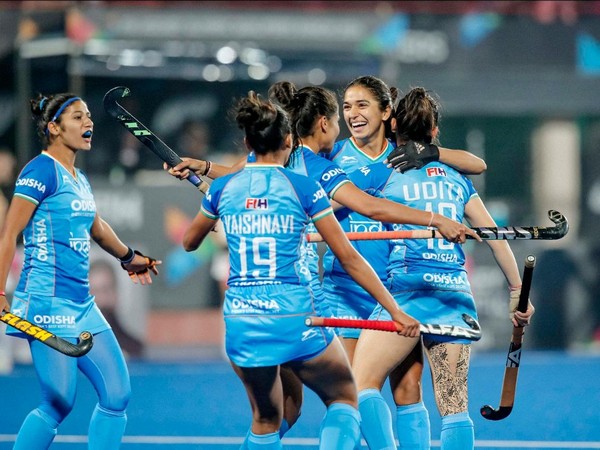The Indian women’s hockey team finds itself in a situation reminiscent of the men’s team, facing a crucial match that can either revive or dash their hopes of qualifying for the Olympics.
After a disheartening opening-day loss to the US, the hocky team made an extraordinary comeback with a victory against New Zealand, bringing a rollercoaster of emotions and uncertainties.

As the Savita Punia-led hocky team gears up for their next match in the Olympic qualifying tournament on Tuesday, they are aiming for a smoother and less dramatic encounter, hoping for a straightforward path without further uncertainties.
India’s situation is straightforward in Hockey: if New Zealand (3 points, goal difference 1) doesn’t win against the USA (6 points, goal difference 3), then India (3 points, goal difference 1) only needs to secure a victory against Italy (0 points, goal difference -5).










